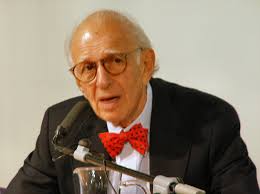Eric Kandel [1929-0] American    
Rank: 101
Scientist, Brain Researcher
Eric Richard Kandel is an Austrian-American neuropsychiatrist. He was a recipient of the 2000 Nobel Prize in Physiology or Medicine for his research on the physiological basis of memory storage in neurons. Medical, Experience, Science, Fear |  |